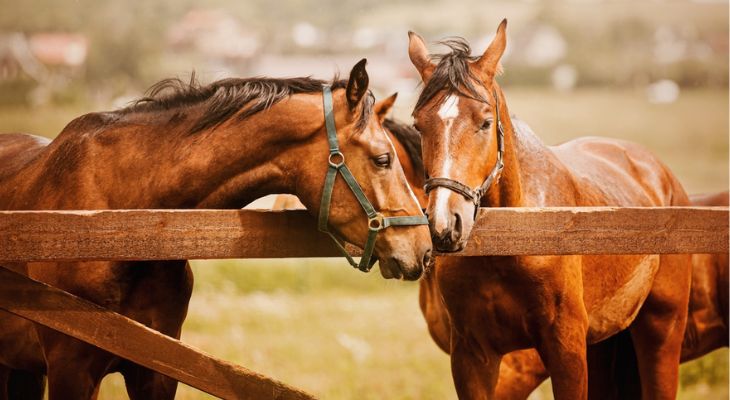
How Often Should Your Horses Have Wellness Exam?
Wellness exams help you ensure that your horse is healthy and doesn't have any undetected diseases, conditions, illnesses, or injuries. Regular exams are essential, but just how often should your horse see the equine veterinarian?
When You Should Schedule a Wellness Exam for Your Horse
Experts recommend wellness exams one to two times a year for most horses. Annual or bi-annual exams make it possible to identify health issues in their earliest stages and start treatment immediately. If your horse has a health condition and you skip a few wellness exams, health problems may be more advanced and more difficult to treat by the time they're diagnosed. Scheduling regular exams offers a simple way to protect your horse's health and comfort.
Whether your horse sees the equine vet once or two times per year may depend on:
- Health. Does your horse have a health condition? Horses with diseases or conditions, or those at risk for developing health conditions, may need more frequent wellness exams.
- Age. Health can change quickly in a younger or older horse. Foals should be seen 12 to 24 hours after birth, then at regular intervals in the coming year. Wellness exams are often performed in addition to the vaccines given at 4 - 6 months, 5 - 7 months, and 10 - 12 months. Older horses need more frequent veterinary care as well. Senior horses are more likely to develop lameness, colic, dental problems, cataracts, recurrent equine uveitis, and Cushing's disease, according to Practical Horseman.
- Working Status. Working horses and those that participate in competitions and events may also benefit from more frequent wellness exams.
- Travel. Horses that travel may be exposed to a variety of illnesses and diseases. Wellness exams make it possible to spot subtle signs that could mean that your horse is unwell.
What Happens During a Wellness Exam?
During a wellness exam, your horse's veterinarian will:
- Measure Vital Signs
- Take a Look at the Condition of the Horse's Teeth
- Assess Your Horse's Overall Condition and Determine a Body Condition Score
- Examine Your Horse's Hair and Skin and Check for Lumps, Bumps, and Injuries
- Evaluate the Ears, Eyes, and Gums
- Look for Signs of External Parasites
- Evaluate Your Horse's Gait and Assess Nervous System Response, and Joint, Muscle, and Hoof Health
- Take a Blood Sample
- Check a Stool Sample and Offer Dewormer as Needed
- Provide Vaccinations
The veterinarian will discuss the results of the exam with you and make recommendations that can improve your horse's health or help you manage chronic conditions. For example, you may be given information about the ideal type and amount of hay, feed, and supplements if your horse is underweight or overweight.
If your horse travels across state lines, the annual exam is the perfect time to draw blood for a Coggins test. The test detects equine infectious anemia (EIA), a viral bloodborne disease that causes fever, weakness, anemia, weight loss, limb swelling, and death. A horse can be a carrier of EIA without displaying any symptoms. A negative test is required for interstate travel, sale of horses, and participation in competitions and events. Coggins test results expire after one year.
Need to schedule an exam for your horse? Get in touch with our office to schedule a convenient appointment.
Sources:
Practical Horseman: Head to Hoof: Senior Horse Health Concerns, 4/9/2023
https://practicalhorsemanmag.com/health/head-to-hoof-senior-horse-health-concerns/
American Association for Equine Practitioners: Vaccinations for Foals
https://aaep.org/sites/default/files/Guidelines/Foal%20Vaccination%20Chart_8.12.16.pdf
Penn State Extension: What Is a Coggins Test, 8/2/2022
https://extension.psu.edu/what-is-a-coggins-test
The Horse: Annual Wellness Exams for Horses, 3/4/2019
https://thehorse.com/152658/annual-wellness-exams-for-horses/
Cornell University College of Veterinary Medicine: Equine Wellness: An Ounce of Prevention Is Worth A Pound of Cure, 10/16/2023
https://www.vet.cornell.edu/news/20231016/equine-wellness-ounce-prevention-worth-pound-cure
Equus: Why Your Horse Needs a Fall Wellness Exam, 10/30/2023
